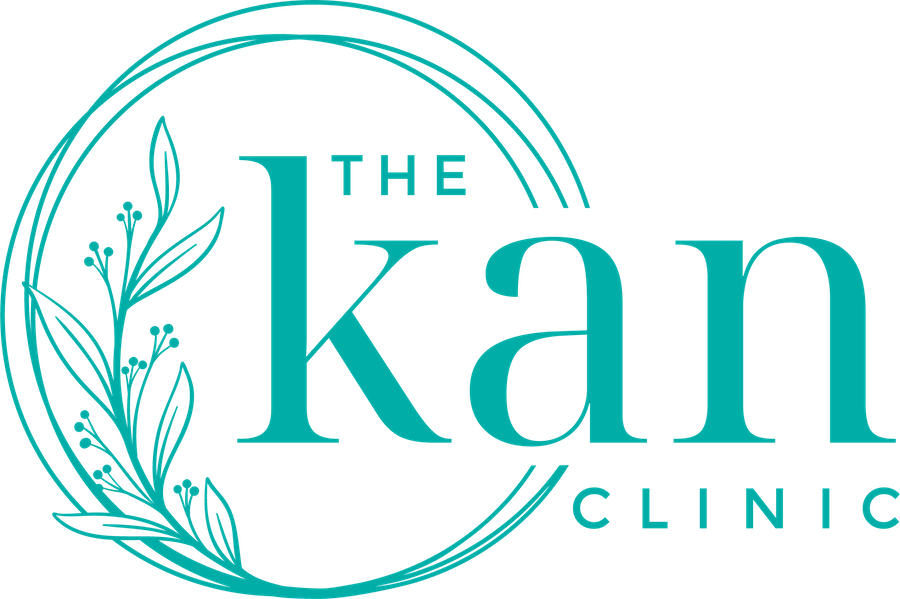Understanding Hormonal Acne: Causes, Symptoms, and Naturopathic Approaches
Unlike the occasional pimple, acne can be a deeply personal and sensitive condition. It’s also incredibly common. So common in fact that research has shown it affects around 85% of teens and up to 54% of adults. Pathophysiological factors that cause acne include excessive or altered sebum production, abnormalities relating to skin cell growth, and immune system responses, and there are actually various underlying drivers of these factors, including hormones.
Hormonal acne is tied to fluctuations in your body’s hormone levels and points to underlying imbalances that need to be addressed. Today I’m going to help you understand hormonal acne, from its causes and symptoms, through to how our team can help you manage it and achieve healthy, glowing skin.
What defines hormonal acne?
Hormonal acne is typically associated with fluctuations in hormone levels, particularly androgens, like testosterone. While often associated with puberty, hormonal acne can actually affect individuals at any stage of life, including during menstrual cycles, pregnancy, perimenopause, and menopause. Hormonal acne typically differs in presentation from other forms of acne due to its location - generally along the jawline, chin, lower cheeks, and sometimes even the neck, chest, and back. Hormonal acne often involves cystic lesions which can be painful, pus-filled, red, swollen, and tender. An important hallmark of hormonal acne to note are flare-ups which will typically correspond or worsen in response to hormonal changes, say those associated with the menstrual cycle. It’s common for acne to worsen in the two weeks leading up to your period.
So what factors drive hormonal acne?
Androgen imbalances: androgens, such as testosterone, can stimulate excess sebum (oil) production in the skin. When sebum combines with dead skin cells and bacteria, it can clog pores and lead to acne. High androgen levels are often a key factor in hormonal acne, which is also why we see acne as a classic symptom of Polycystic Ovary Syndrome (PCOS) - a condition of androgen excess.
Oestrogen imbalances: many people experience a surge in acne just before or during their period. This may indicate an excess of oestrogen, or an excess of oestrogen relative to progesterone levels which presents as high oestrogen. Oestrogen and testosterone are actually closely linked, and too high levels of oestrogen can convert to a more potent form of testosterone, leading to acne.
PCOS: as I’ve already briefly mentioned, PCOS is a hormonal disorder of excess androgens, often leading to persistent and moderate- severe acne.
Stress: stress triggers the release of cortisol and other hormones and neurotransmitters that can disrupt your hormonal balance and exacerbate acne.
The naturopathic approach
Whilst your GP may whack you on the pill, antibiotics, or even high dose retinoids to ‘treat’ your hormonal acne, at The KAN Clinic we go 10 steps further and determine the underlying cause of your hormonal acne so that we treat the root cause, achieve long-term results, and avoid the detrimental side effects of conventional treatments.
Rebalancing and optimising hormones: I often use blood tests to determine exactly which hormones are at play. From there, I utilise herbal and nutritional interventions to rebalance hormones. The choice I make here wholly depends on the individual in front of us, but frequent players I reach for include vitex, liquorice root, paeony, spearmint, zinc, B6, magnesium, vitamin D, myo-inositol, chromium, and shatavari.
Supporting natural detoxification pathways via the gut and liver: your liver is where you process hormones and your gut is where you remove excess hormones and hormonal waste. So if your gut and liver aren’t functioning optimally, it’s going to be hard if not impossible to balance your hormones. Here, I support the liver being able to do it’s job properly with herbs like globe artichoke and milk thistle. I also focus on promoting gut health, and addressing any issues like constipation or leaky gut.
Optimising the diet: the focus here is to optimise macronutrient balance and ensure nutritional needs are met. Ensuring adequate fibre and water intake is also essential here, as is promoting healthy blood sugar regulation, and increasing the overall quality of the diet. I also remove any dietary aggravators of both hormonal issues and acne, such as alcohol, refined sugars, highly processed foods, dairy, gluten, and excessive caffeine.
Managing the stress response: I’ve already touched on the role that stress plays in hormonal acne, so a holistic approach to hormonal acne should always include stress management! This can include lifestyle interventions, or go further and utilise herbs and nutrients like withania, magnesium, and rhodiola which help regulate the stress response from a physiological perspective.
Reducing inflammation: inflammation is a large component of acne. Whilst I will utilise dietary and lifestyle interventions to downregulate inflammatory responses, I also often include highly effective supplementation such as essential fatty acids.
Promoting overall skin health: this includes reviewing how you take care of your skin externally and internally. I may recommend specific skin care products to support your skin barrier, and nutrients zinc, vitamin A, and essential fatty acids which restore skin barrier function.
Supporting a healthy lifestyle: here I always consider sleep quality, exercise, stress management practices, and how well you take care of yourself.
Acne can be a challenging condition. As someone who has experienced chronic hormonal acne, I understand the significant impact that it can have on mental health and quality of life. I also understand first hand the importance of taking a comprehensive, holistic approach. By understanding the underlying causes and incorporating naturopathic care, you can support your body’s hormone balance and achieve healthier, clearer skin. If you want to chat more about how naturopathy can help heal your acne, book a discovery call below!
Interested in More Tips and Naturopathic Insights?
Subscribe to our newsletter to receive expert advice, health tips, and updates directly to your inbox!
